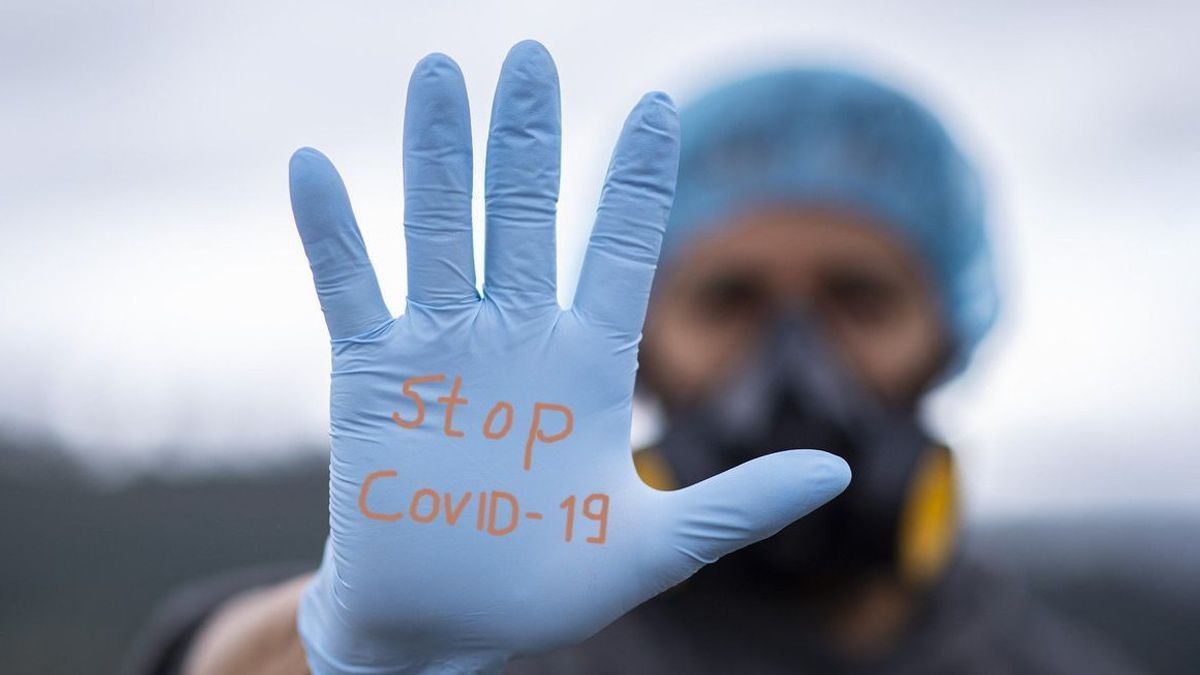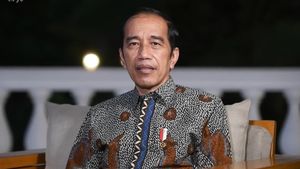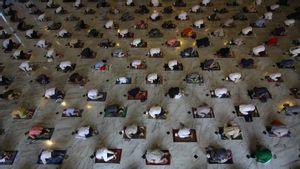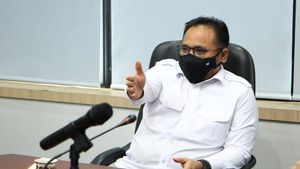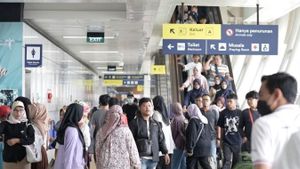JAKARTA - The government has issued an intervention to strengthen mobility restrictions in Micro-Restrictions on Community Activities (PPKM) amid the current surge in COVID-19 cases.
Various policies were carried out, starting from increasing the capacity for treating COVID-19 patients, strengthening supervision and enforcement of health protocols, to accelerating vaccination. However, it turns out that this is not enough to control the pandemic.
An epidemiologist from Griffith University Australia, Dicky Budiman, thinks it is time for the public to realize their role in helping to minimize the transmission of the coronavirus.
"The community must be aware of its role. If identified, there are thousands of ways or approaches outside of the pharmaceutical side that can be done. This contributes to 80 percent of pandemic control. That's a big number", said Dicky to VOI, Wednesday, June 23.
In essence, the public must continue to adhere to health protocols while the pandemic is still ongoing. In addition, individuals from the community themselves also need to maintain general health.
Because, to be able to undergo the COVID-19 vaccination, you must also have a healthy body. Although, Dicky admitted that a good immune system did not guarantee that he would be protected from COVID-19 transmission.
"This is indeed complex. But, at least with a healthy lifestyle, people can have a small chance of risk factors for COVID-19 exposure", he said.
SEE ALSO:
"Not only immunity, but also fitness and general health are maintained with balanced nutrition consumption, rest, and adequate exercise", he added.
Previously, the Spokesperson for the COVID-19 Task Force, Wiku Adisasmito, said the spike in COVID-19 cases on a national scale over the past four weeks had jumped very sharply, up 92 percent from the previous month.
"This is a very sharp increase, and it cannot be tolerated", said Wiku.
Wiku explained that the six provinces with the highest increase in COVID-19 cases were on the island of Java. Based on data as of June 20, 2021, cases in DKI Jakarta increased by 387 percent with a total increase of 20,634 cases, then West Java increased by 115 percent, with a total increase of 8,382 cases.
Then, cases in Central Java increased by 105 percent with a total increase of 5,896 cases, East Java increased by 174 percent with a total increase of 2,852 cases, DI Yogyakarta increased by 197 percent with a total of 2,583 cases, and Banten increased by 189 percent with a total of 967 cases.
The English, Chinese, Japanese, Arabic, and French versions are automatically generated by the AI. So there may still be inaccuracies in translating, please always see Indonesian as our main language. (system supported by DigitalSiber.id)
